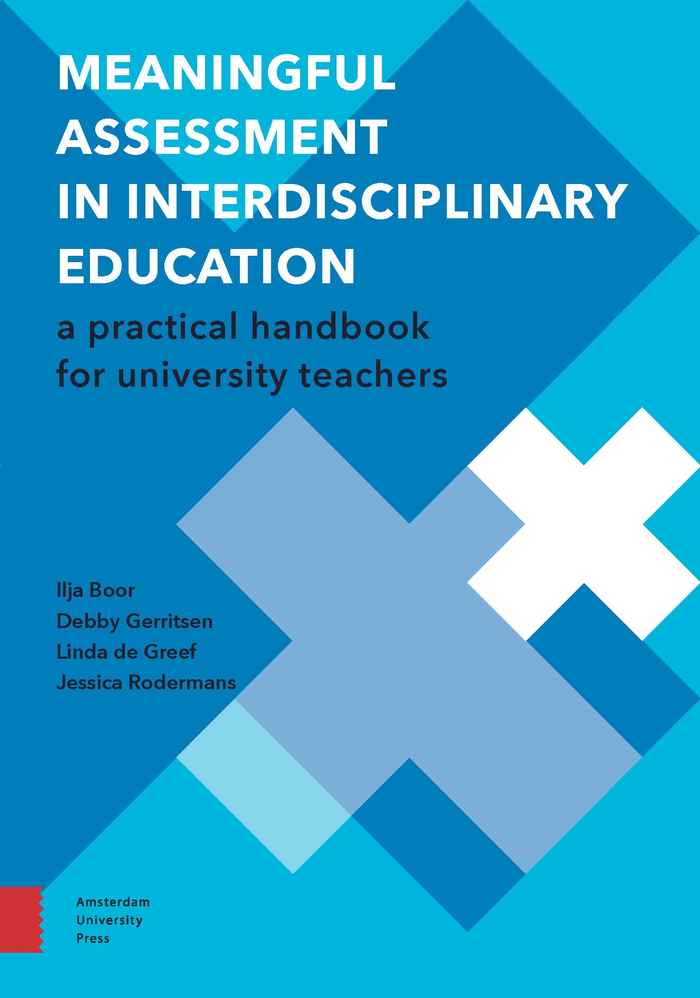New IIS publication: Meaningful Assessment in Interdisciplinary Education
25 juni 2021

During the book presentation, authors Linda de Greef, Ilja Boor, Debby Gerritsen and Jessica Rodermans gave a short explanation of 'meaningful assessment' and the five building blocks they identified in the book. The importance of assessment as an integral part of learning, in which assessment stimulates learning and is based on the intrinsic motivation of students, was emphasised.
Best Practices
Next, the authors had a dialogue with three lecturers who shared their best practices. Anco Lankreijer, lecturer at the UvA and the VU, talked about the installation that students built during his course Big Questions in Time, in which they used their personal approach to visualise the concept of 'time'. Roosmarijn van Woerden of Utrecht University shared her insights on using a portfolio to teach students to reflect on interdisciplinary competencies. Wendy Nuis, lecturer at Maastricht University, discussed the five golden principles of collaboration and encouraged other educators:
Design your assignment in such a way that students can work together as a team. Give them a common goal, so it really is a team effort and they need each other to achieve an end-product. Identify the critical moments in which you need to actively intervene and open the conversation. Support and coach your students on the team process.dr. Wendy Nuis
Jessica Zweers, lecturer at Hanzehogeschool Groningen and elected as Dutch National Teacher of the Year 2021, received the first copy of Meaningful Assessment in Interdisciplinary Education. As a teacher, she now recognises that when she was a student she made two big mistakes. In the video below, she explains why assessment is not the end but only the beginning, and she gives advice to other teachers:
Assessment in development
University teachers of today face the challenge of teaching students to look beyond the boundaries of their own discipline and come up with innovative solutions to societal challenges. Just as teaching and learning are in need of change, so is the assessment and evaluation of students. The handbook Meaningful Assessment in Interdisciplinary Education is available at all major (online) bookstores and can be ordered at Amsterdam University Press.